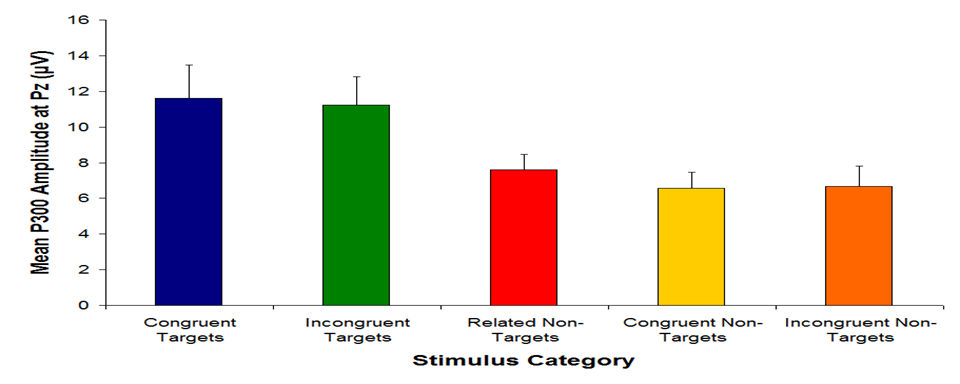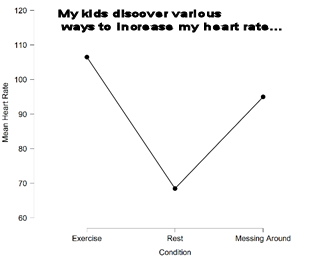- Teacher: Justin Henderson
Lewis & Clark Moodle
Search results: 596
- Teacher: Justin Henderson
- Teacher: Justin Henderson
- Teacher: Justin Henderson
- Teacher: Justin Henderson
- Teacher: Justin Henderson

treatment of mental, emotional, substance abuse,
and addictive disorders in late adolescence and
adulthood. Covers adjustment, mood, anxiety,
psychotic, dissociative, impulse, sexual,
personality, and addictive disorders, including
gambling and eating disorders. Topics include
multicultural, interpersonal, and relationship
factors; evidence-based treatments; and
information technology research tools. Emphasis is
on planning comprehensive, multifaceted treatment
interventions.
- Teacher: Justin Henderson
- Teacher: Kate Madden
- Teacher: Justin Henderson
- Teacher: Justin Henderson
- Teacher: Justin Henderson
- Teacher: Justin Henderson
- Teacher: Stella Kerl-Mcclain
- Teacher: Renee Fitzpatrick
- Teacher: Kate Madden
- Teacher: Krystal Marcinkiewicz
- Teacher: Mark Douglass
- Teacher: Adam Rodriguez
- Teacher: Justin Henderson
- Teacher: Laura Nichols
- Teacher: Laura Nichols
- Teacher: Mark Douglass
treatment of mental, emotional, substance abuse,
and addictive disorders in late adolescence and
adulthood. Covers adjustment, mood, anxiety,
psychotic, dissociative, impulse, sexual,
personality, and addictive disorders, including
gambling and eating disorders. Topics include
multicultural, interpersonal, and relationship
factors; evidence-based treatments; and
information technology research tools. Emphasis is
on planning comprehensive, multifaceted treatment
interventions.
- Teacher: Krystal Marcinkiewicz
- Teacher: Kate Madden
treatment of mental, emotional, substance abuse,
and addictive disorders in late adolescence and
adulthood. Covers adjustment, mood, anxiety,
psychotic, dissociative, impulse, sexual,
personality, and addictive disorders, including
gambling and eating disorders. Topics include
multicultural, interpersonal, and relationship
factors; evidence-based treatments; and
information technology research tools. Emphasis is
on planning comprehensive, multifaceted treatment
interventions.
- Teacher: Mark Douglass
treatment of mental, emotional, substance abuse,
and addictive disorders in late adolescence and
adulthood. Covers adjustment, mood, anxiety,
psychotic, dissociative, impulse, sexual,
personality, and addictive disorders, including
gambling and eating disorders. Topics include
multicultural, interpersonal, and relationship
factors; evidence-based treatments; and
information technology research tools. Emphasis is
on planning comprehensive, multifaceted treatment
interventions.
- Teacher: Renee Fitzpatrick
- Teacher: Charles Dickerman
- Teacher: Charles Dickerman
- Teacher: Wendy Esther
- Teacher: Wendy Esther
of the field of addiction counseling and the
impact of addiction on child, adolescent, and
adult populations. The course will summarize key
points drawn from the following areas: the
American experience with addiction and recovery,
theoretical explanations for understanding
addiction and dual diagnosis, basic pharmacology
and neuroscience, and assessment and treatment
issues specific to dual diagnosis and addiction
counseling.
- Teacher: Raelynn Freden
- Teacher: Charles Dickerman
- Teacher: Charles Dickerman
- Teacher: Mark Douglass
- Teacher: Wendy Esther
- Teacher: Raelynn Freden
of the field of addiction counseling and the
impact of addiction on child, adolescent, and
adult populations. The course will summarize key
points drawn from the following areas: the
American experience with addiction and recovery,
theoretical explanations for understanding
addiction and dual diagnosis, basic pharmacology
and neuroscience, and assessment and treatment
issues specific to dual diagnosis and addiction
counseling.
- Teacher: Jeffrey Christensen
- Teacher: Charles Dickerman
in school, clinical, and applied settings.
Addresses psychometric concepts such as validity,
reliability, norms, and score interpretation.
Surveys intelligence, personality, career,
interest, aptitude, and achievement tests and
reviews alternative methods of assessing
competence and person-situation interactions.
Contemporary issues such as the validity of
instruments for diverse populations and the impact
of technology on assessment are discussed.
- Teacher: Krystal Marcinkiewicz
- Teacher: Jeffrey Christensen
- Teacher: Jeffrey Christensen
- Teacher: Leigh Anne Scherer
- Teacher: Jeffrey Christensen
- Teacher: Jeffrey Christensen
- Teacher: Jeffrey Christensen
- Teacher: Jeffrey Christensen
- Teacher: Tyler Case
- Teacher: Jeffrey Christensen
- Teacher: Jeffrey Christensen
- Teacher: Jeffrey Christensen
- Teacher: Krystal Marcinkiewicz
- Teacher: Jeffrey Christensen
in school, clinical, and applied settings.
Addresses psychometric concepts such as validity,
reliability, norms, and score interpretation.
Surveys intelligence, personality, career,
interest, aptitude, and achievement tests and
reviews alternative methods of assessing
competence and person-situation interactions.
Contemporary issues such as the validity of
instruments for diverse populations and the impact
of technology on assessment are discussed.
- Teacher: Krystal Marcinkiewicz
- Teacher: Jeffrey Christensen
- Teacher: Justin Henderson
- Teacher: Jeffrey Christensen
- Teacher: Jeffrey Christensen
in school, clinical, and applied settings.
Addresses psychometric concepts such as validity,
reliability, norms, and score interpretation.
Surveys intelligence, personality, career,
interest, aptitude, and achievement tests and
reviews alternative methods of assessing
competence and person-situation interactions.
Contemporary issues such as the validity of
instruments for diverse populations and the impact
of technology on assessment are discussed.
- Teacher: Antonia Mueller
- Teacher: Gracen Tichelaar
- Teacher: Jeffrey Christensen
in school, clinical, and applied settings.
Addresses psychometric concepts such as validity,
reliability, norms, and score interpretation.
Surveys intelligence, personality, career,
interest, aptitude, and achievement tests and
reviews alternative methods of assessing
competence and person-situation interactions.
Contemporary issues such as the validity of
instruments for diverse populations and the impact
of technology on assessment are discussed.
- Teacher: Jeffrey Christensen
- Teacher: Krystal Marcinkiewicz
- Teacher: Gracen Tichelaar
- Teacher: Jeffrey Christensen
- Teacher: Alexia Deleon
- Teacher: Mark Douglass
- Teacher: Mark Douglass
- Teacher: Mark Douglass

Major drugs and classes of abused substances.
Mechanisms of action in the brain, patterns of
physiological response in abuse, addiction, and
recovery. Impact on brain function, cognition,
emotions, behavior, and social effects.
Pharmacological adjuncts to detoxification and
treatment.
- Teacher: Justin Henderson
- Teacher: Kayla Carrar
- Teacher: Justin Henderson
Major drugs and classes of abused substances.
Mechanisms of action in the brain, patterns of
physiological response in abuse, addiction, and
recovery. Impact on brain function, cognition,
emotions, behavior, and social effects.
Pharmacological adjuncts to detoxification and
treatment.
- Teacher: Mark Douglass
Major drugs and classes of abused substances.
Mechanisms of action in the brain, patterns of
physiological response in abuse, addiction, and
recovery. Impact on brain function, cognition,
emotions, behavior, and social effects.
Pharmacological adjuncts to detoxification and
treatment.
- Teacher: Mark Douglass
from around the world with a special focus on the
Andes, Ireland, Indonesia, Ghana, and India.
Drawing on historical and visual sources,
recordings, and contemporary ethnography, the
course develops interpretive skill sets for
analyzing the sound structures, performance
contexts, and cultural significance of music in
rituals, festivals, politics, schools, recording
studios, cinema, the internet, and global stages.
In addition to learning about key topics in the
field of ethnomusicology, we engage with
traditions firsthand through an ethnographic
assignment in Portland and a weekly workshop with
performance faculty on campus. Organized into
three small-group sessions, the workshops
introduce music and dance from Indonesia, Ghana,
Zimbabwe, Spain, Latin America, and/or North
India. Specific content may change from year to
year.
- Teacher: Erica Jensen
- Teacher: Kaley Mason
- Teacher: Kaley Mason
- Teacher: Alexander Addy
- Teacher: Julia Banzi
- Teacher: Erica Jensen
- Teacher: Kaley Mason
- Teacher: Michael Stirling
- Teacher: Justin Counts
- Teacher: Kaley Mason
- Teacher: Rebecca Smith
- Teacher: Freddy Vilches
- Teacher: Alexander Addy
- Teacher: Julia Banzi
- Teacher: Erica Jensen
- Teacher: Kaley Mason
- Teacher: Freddy Vilches
- Teacher: Julia Banzi
- Teacher: Mindy Johnston
- Teacher: Kaley Mason
- Teacher: Freddy Vilches
- Teacher: Kaley Mason
doing ethnographic fieldwork in Portland music
scenes. Topics unfold over three stages. First, a
prefield introduction to research design,
politics, and ethics. Second, an infield focus on
skill sets for participating in, observing, and
documenting the social life of a music-centered
scene. Third, a postfield emphasis on
relationships, rights, responsibilities, and
representational strategies. In class, we discuss
readings from anthropology, ethnomusicology,
sociology, performance studies, and folklore,
along with individual work in progress.
- Teacher: Kaley Mason
- Teacher: Kaley Mason
- Teacher: Justin Counts
- Teacher: Kaley Mason
every semester. Topics announced in advance.
Classes will focus on music outside of North
America. Topics in previous semesters have
included music and Chinese philosophy, music and
iconography, music of diaspora, music and ritual,
eco-musicology, women and music, and medieval and
Renaissance music.
- Teacher: Kaley Mason
- Teacher: Stephen Tufte

- Teacher: Todd Lochner
- Teacher: Ben Gaskins
- Teacher: John Holzwarth
change, physiological processes that mediate
psychological functioning, processes of human
perception and cognition, approaches to
understanding functional and dysfunctional
personality characteristics of individuals,
counseling and psychotherapy techniques,
application of psychological principles to social
phenomena.
- Teacher: Huda Basharow
- Teacher: Kayla Puente
- Teacher: Jolina Ruckert
change, physiological processes that mediate
psychological functioning, processes of human
perception and cognition, approaches to
understanding functional and dysfunctional
personality characteristics of individuals,
counseling and psychotherapy techniques,
application of psychological principles to social
phenomena.
- Teacher: Huda Basharow
- Teacher: Kayla Puente
Principles underlying behavioral development and
change, physiological processes that mediate
psychological functioning, processes of human
perception and cognition, approaches to
understanding functional and dysfunctional
personality characteristics of individuals,
counseling and psychotherapy techniques,
application of psychological principles to social
phenomena.
- Teacher: Huda Basharow
- Teacher: Kayla Puente
Principles underlying behavioral development and, change, physiological processes that mediate, psychological functioning, processes of human, perception and cognition, approaches to, understanding functional and dysfunctional, personality characteristics of individuals,, counseling and psychotherapy techniques,, application of psychological principles to social, phenomena.
- Teacher: Sarina Saturn
- Teacher: Rachel Takamiya
Principles underlying behavioral development and, change, physiological processes that mediate, psychological functioning, processes of human, perception and cognition, approaches to, understanding functional and dysfunctional, personality characteristics of individuals,, counseling and psychotherapy techniques,, application of psychological principles to social, phenomena.
- Teacher: Kayla Puente
- Teacher: Elena Perrine
- Teacher: Jolina Ruckert
- Teacher: Kayla Puente

- Teacher: Ty Cudd
- Teacher: Ela Gore
- Teacher: Jolina Ruckert
behavior through the lens of film. How cultural
forces and transitions shape worldview, individual
identity and personality, child development,
family structure and dynamics, personal
relationships, social perception, other aspects of
behavior relevant to psychology. Variety of
cultures and cultural influences, theories and
methods in cultural psychology, ways in which
culture shapes film and film reflects and shapes
culture. Does not apply to major requirements.
- Teacher: Yueping Zhang
- Teacher: Todd Watson

Important Note: You can’t earn credit for BOTH Psy 200 and AP/IB statistics.
- Teacher: Todd Watson

- Teacher: Todd Watson
- Teacher: Todd Watson